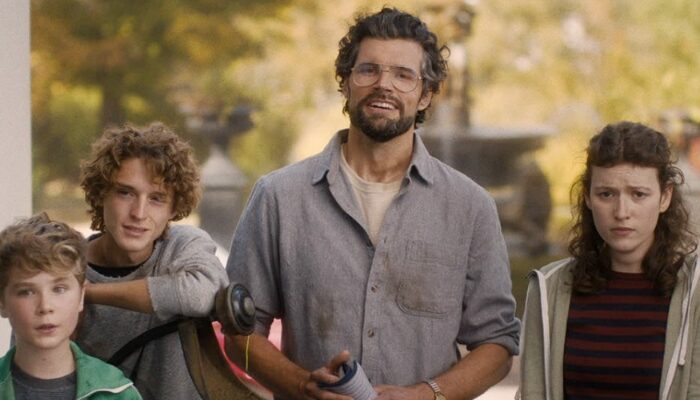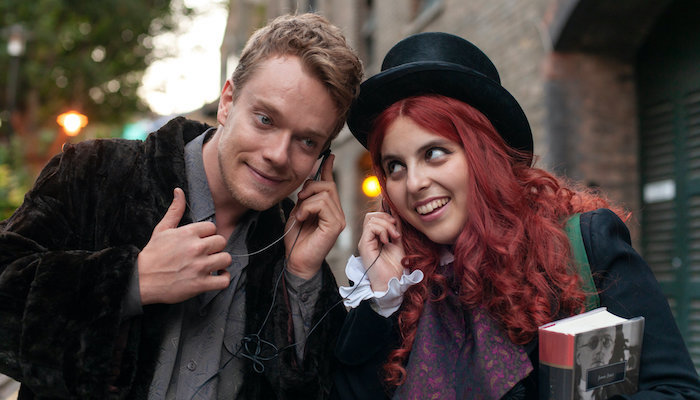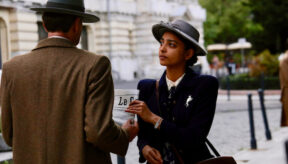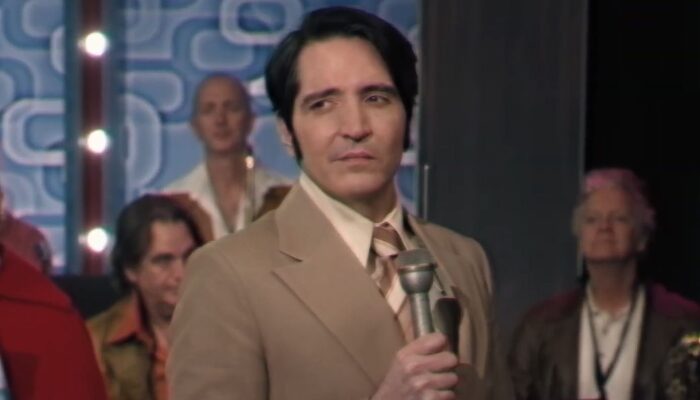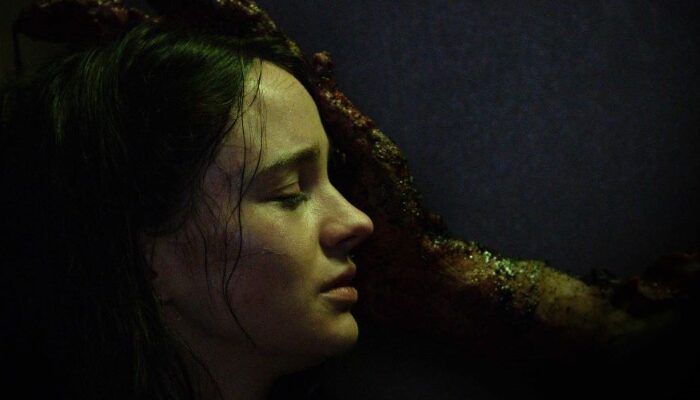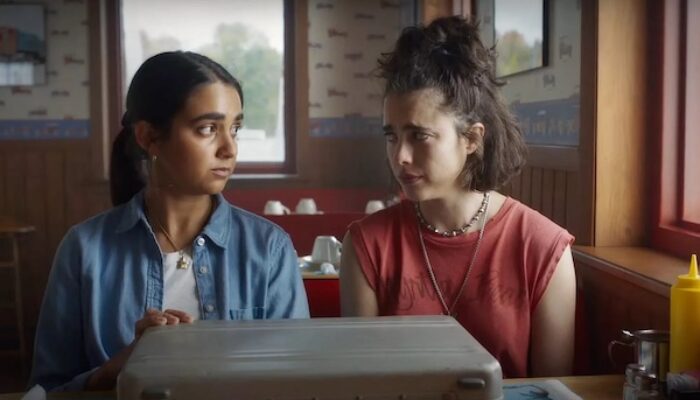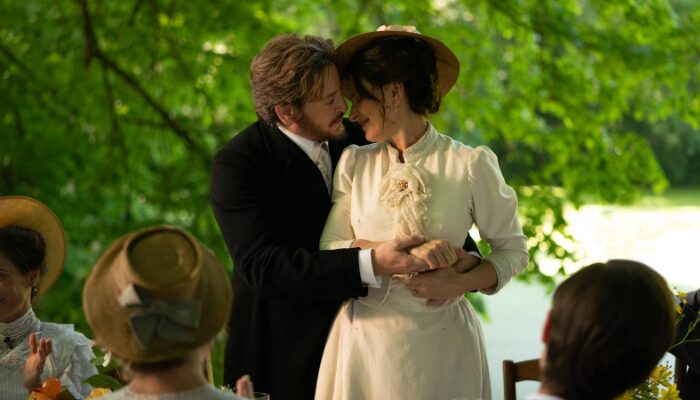Film Review: HOW TO BUILD A GIRL (2019): A Quirky Coming of Age Comedy from Coky Giedroyc
How to Build A Girl Review
How to Build A Girl (2019) Film Review, a movie directed by Coky Giedroyc, and starring Beanie Feldstein, Paddy Considine, Sarah Solemani, Alfie Allen, Frank Dillane, Laurie Kynaston, Chris O’Dowd, and Emma Thompson.
The IFC Films released film is based on the novel of the same name by Caitlin Moran, who also wrote the screenplay based loosely on her own life story. The film follows Johana Morrigon (played by Beanie Feldstein), a bright, imaginative, and awkward 16-year-old aspiring writer from Wolverhampton who’s desperate to escape her overcrowded family home. From the very beginning, we are introduced to Johana and she explains how unrelatable she feels which is ironic, considering she’s probably relatable to most anxious and awkward not your average size girl viewers. However, Johana feels invisible and uses her imagination to fill the void that her loneliness has created. We see her enter her family home, where we see that it’s overcrowded with her parents and three siblings, two of which are newborn babies. They’re barely getting by (to the point where they must rent a television if they want to watch television), her father illegally breeds puppies to try to fund a rock career and her mother is going through post-partum depression.
Johana dreams of a calling and often finds comfort in what she calls her ‘wall of gods’ which consists of a wall in her tiny bedroom covered in her biggest inspirations. Her inspirations range from actual legends to fictional characters which include Karl Marx, Sigmund Freud, Frida Kahlo, Elizabeth Taylor, Cleopatra, Sylvia Plath and Jo March. She uses this wall to guide her, imagining them talking to her and giving her advice when she has troubles or questions about the world. If you’re a Little Women fan and know of the character Jo March, you can already begin to see the similarities in the character and in Johana. Poor family, the name ‘Jo’ in her name, several siblings, young writer, etc. Keep this in mind because more comparison to Jo March later in this review.
Johana ends up winning a contest, as well as an opportunity to appear on television to read one of her poems, which she confuses as her calling and ends up instantly ruining it due to how nervous she is and ends up making a fool of herself on television. Of course, the entire school sees it and she becomes the laughing stalk of the school. Her brother tries to help her out and shows her an ad in the local newspaper for D&ME, a local music review office who needs a rock critic to join their team. She submits a review for the position by reviewing the Annie soundtrack, which wouldn’t normally be anyone’s first pick when applying for a rock music position. The sequence where she’s writing the review, submitting it then heading to the interview after she gets a call from D&ME, Annie’s ‘Tomorrow’ is playing. It shows that even though she had just embarrassed herself and was being made fun of at school, tomorrow was going to be brighter and better, which as she gets the interview, that message seems to show proven. Except, the guys who work at D&ME make fun of the way she looks, what she chose to review, and at the fact that she was so young. She hides in the restroom following her embarrassment and ends up imagining the poster on the bathroom wall is talking to her. Johana complains that she’ll never be cool but the woman in the poster reassures her that “cool people are the worst” anyways, and that rooms like the one Johana had just walked out of needed girls like her. Johana takes the inspiration and walked back in there and asks for a chance.
Johana is given a trial run and is given a band to go see and review. Wanting to fit in into the scene, she decides to reinvent herself to fit into the early 90s London scene, creating an alter ego for her music journalist persona, Dolly Wilde. Dolly resembles Alice In Wonderland’s The Mad Hatter; red hair, top hat, tailcoat, and a bowtie. To make her look more punk rock, Dolly sports fishnets, combat boots, and Cleopatra inspired eye liner. She gets all the materials for her new do up thanks to her brother’s savings that he lets her borrow and once she’s ready to head to her first rock concert, her father drives her and encourages her. Family support being very evident at this point. Johana starts to love rock music after that night and is given more assignments from D&ME, starting to make money and you see her provide for her family. She’s getting more confident as she makes more money, but it isn’t until she gets the opportunity to do a feature on an artist where she gets to travel and ends up falling in love.
Johana meets musician John Kite (played by Alfie Allen) and during their first conversation, John can already tell that she was new at this and that she was unlike any other person he’s met. She hadn’t seen much of the world and he takes it upon himself to show her a bit of what the world has to offer. They spend the day together and talk plenty, he even admits to certain demons in his past which he clearly states are off the record and she agrees. When she goes home to write her review though, the guys at D&ME tell her it sounds like an excited teenage girl wrote it and fire her. She feels like it’s the end of the world and begins to lose faith, but then she gets some words of encouragement from yet again, another person in a poster. This time though, it’s John Kite speaking to her and giving her a push to get back up again. To Johanna though, in order to turn the situation around she decides to follow the words “a nice girl goes nowhere, but a b**** can make a comeback,” which already sets the tone for what the audience is about to reeled into to.
Johana submits a review to D&ME bashing a musical artist, which they love and add her back on the team because they think her reviews are hilarious. She starts to bash more artists as the days go by, all while becoming an arrogant human being herself. We watch her completely lose herself in this new persona and mindset, with montages of her partying with bands, smoking, drinking alcohol, having sex, being obnoxious, and even covering the images on her ‘wall of gods’ in her bedroom. She’s even inconsiderate and mean to her family after they had supported her before her life took a turn. At this point in the film, Johana truly does become unrelatable and brings back the concept from earlier that cool people are the worst. Though she’s getting into all these parties and enduring in the fast life, becoming this “cool” popular individual, she’s becoming less herself and it’s extremely cringey to watch. In the voice over during one of the sequences, she even states “the things about crossing over to the dark side is that once you’re there it doesn’t feel dark at all, it feels warm and welcoming. You and your friends are just taking care of business.” Not even five minutes later, she cheers with one of her co-workers “to evil”. She’s gotten so deep that when they make fun of her father, she doesn’t defend him and joins in on the fun. Later we see her at an award show where she wins a well deserved ‘A**hole of the Year’ award, which you’d think would show her the type of person she had become but she’s too blinded by her new life. Dolly’s new life. She ends up running into John Kite there but not as the timid excited girl he had met before, instead he gets Dolly. He ends up rejecting her, which drives her into the arms of one of her boss’ at D&ME. The next morning, when she wakes up in said boss’ bed, still hurt from the night before, she doesn’t hesitate to start writing a new feature exposing everything John had told her in confidence about his dark past. This is when we know she’s gone too far.
Johana is so high on her high horse that she begins to act obnoxious at school, talking back to her teacher until she decides to quit and walk out without a care in the world. Her family tries to confront her about the person she’s become, saying that she used to be a happy useful girl but has transformed into an angry selfish person. She tells them off and throws the fact that she pays the rent now in all their faces. We then see her at an after party at her boss’ house, where everyone’s half naked and drunk, playing drinking games and talking crap. It isn’t until she leaves to change when she overhears the guys she works with bashing her and making fun of her that she realizes how she sounded when she did the same exact thing to others. She yells at them then rushes home where she attempts self-mutilation but then gets knocked out with funnily enough, her ‘A**hole of the Year’ Award. She’s officially hit rock bottom and realizes everything she had done and become. Her family is there when she wakes up in the hospital, still at her side, and her appreciation shows in the look in her eyes. We then see her in her room where she starts to uncover her ‘wall of gods’, burning everything she had put up to cover them. Burning anything that referenced Dolly Wilde.
Finally, she’s back in her usual clothes and she starts to call all the people that she bashed in her reviews, trying to right her wrongs. She starts to write something personal and reflective about her experience, then submits it elsewhere, where she ends up getting a column all to herself called ‘How to Build A Girl’ which will follow her journey reflecting on her finding herself again and building herself back up. Like one of her idol’s, the character, Jo March from Little Women, she sells something she has written that is personal and that tells her own story. Also like Jo, she even cuts her hair and has it styled the same way as the character does in the films. In Little Women, Jo sells her hair for money, but in this film, Johana cuts her hair to make amends with John Kite, to prove that she’s willing to do anything to make it up to him. The movie ends with this gesture and the two decide to be friends, showing that even though at the beginning of the film she dreamed for a man to whisk her away, all she really needed was herself. The story is a true tale of fantasy and reality and how easy it is to get caught up in something that you think you want or that seems cool, but ends up hurting those around you and causes you to lose yourself. This was definitely one of my favorite coming of age stories I’ve seen this year. I also really appreciated the homage to Little Women throughout Johana’s story.
Rating: 9/10
Leave your thoughts on this How to Build A Girl review and the film below in the comments section. Readers seeking to support this type of content can visit our Patreon Page and become one of FilmBook’s patrons. Readers seeking more film reviews can visit our Movie Review Page and our Movie Review Pinterest Page. Want up-to-the-minute notifications? FilmBook staff members publish articles by Email, Twitter, Instagram, Tumblr, Pinterest, and Flipboard.
Related Articles
FilmBook's Newsletter
Subscribe to FilmBook’s Daily Newsletter for the latest news!

